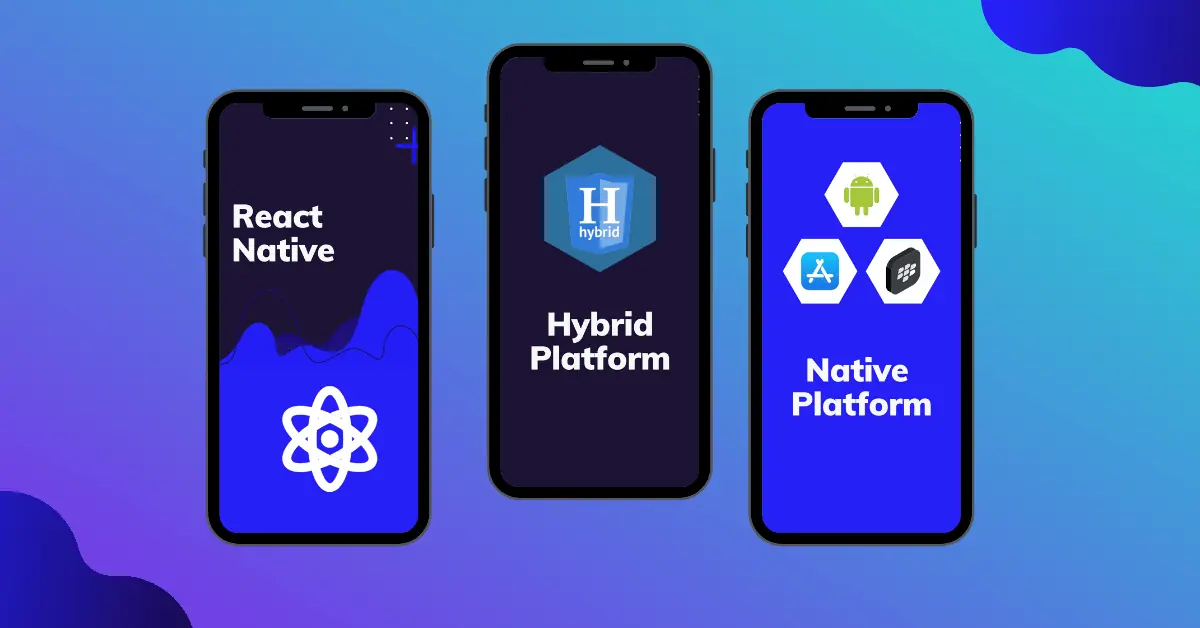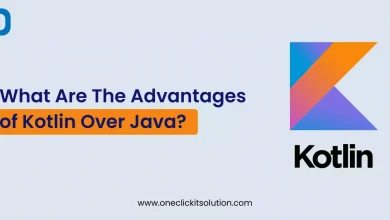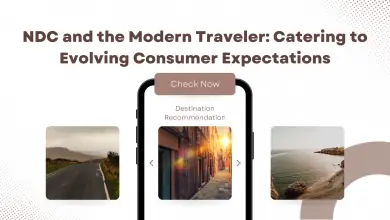Native vs Hybrid vs PWA: What Should You Choose?

Introduction
When it comes to mobile app development, the options are so many that it can sometimes be difficult to know where to start. Web applications, Native, or Hybrid?
These are the three best and most popular types of mobile apps. each offers its own advantages and disadvantages, and they all make sense in their specific context. This article will highlight the difference between PWA and Hybrid app along with Native and teach you exactly what you need to know to make an informed decision that makes sense for your business and your financial situation.
What Type of Mobile Application Should You Develop?
There is a range of best and most popular frameworks to develop mobile apps. Depending on your type of business, your goals and the situation in your market sector, the type of mobile application you choose to develop could be the deciding factor between a successful project or a total waste of money.
Deciding whether to develop your app as a web, native, or hybrid app involves considering a number of factors. Read on for the pros and cons of each approach.

1. Progressive Web Apps (PWA)
Is a web application different from a website? They are very similar, but a web application condenses the content of the regular website to improve mobile functionality. Web applications are not for sale on the app store, they actually work on mobile browsers like Chrome or Safari.
If your goal is to deliver mobile-friendly content to a large number of users, a web application might be a good choice for your business. Web apps are definitely a cost-effective way to build an app, but remember that mobile phone users have incredibly high standards of functionality in terms of user experience that web apps sometimes simply cannot offer.
The majority of mobile phone users just want to have fast charging times and a smooth user experience. So a web application can be frustrating for some people due to performance and usability issues like load times, small images, and network uptime.
How to Create a Progressive Web Application?
Web applications are designed like websites, using JavaScript, CSS, and HTML5. Web apps are generally much simpler and faster to build, but they’re also very straightforward and lack all of the cool features that make a native app so useful.
What are Progressive Web Apps?
Progressive web apps (PWAs) are essentially a hybrid between regular web pages and native apps. Overall, most web apps lack the functionality of native apps, such as sending push notifications, integrating cameras, locating, or working offline.
However, today’s web applications are more and more advanced. PWAs now take advantage of some features of native applications, such as:
- Access to the functionalities of the device e.g. vibrations
- Sending push notifications
- Improvement of touch gestures
Despite these new features and improvements, PWAs are currently only compatible with Google Chrome, which means that the iPhone cannot access these types of applications.
Depending on your business goals and monetization strategy, excluding iOS users can be a huge downside as it is known in the mobile app development community that iOS users are generally more willing to spend money for apps and in-app purchases than their Android counterparts.
Benefits of Building a Progressive Web Application
- Web applications have a lower barrier to entry and are easier to build and maintain since they use a codebase common to all mobile platforms.
- They can work on any platform as long as they are used in an appropriate web browser.
- Compared to native applications, web applications are less expensive to develop and maintain.
- Web applications do not have to adhere to standard operating system protocols and do not require application market approval; they can be broadcast at any time and in any format.
- Web apps don’t need to be updated manually, unlike native apps which need to be updated through the app store/game store.
Disadvantages of Progressive Web Applications
- Web applications have much less exclusive functionality, as they cannot exploit the functionalities and hardware of devices like native applications (camera, Bluetooth, location, etc.)
- Since a web browser is required to run a web application, users need to take more steps to use a web app, whether it’s searching for the page or typing a URL. Either way, if the user has to put more effort into using the app, they will most likely use it less often or end up using a competitor’s native app.
- Data is much harder to collect. The usage patterns and performance metrics used to create a product roadmap are difficult to collect compared to native apps.
- Web apps are much more difficult to market and launch successfully because they are not available on the app store.
- Web apps are generally slower, less responsive, and more difficult to use than native apps, which provide a more refined and intuitive experience.
2. Native App Development
Most of the apps you find will be native apps, which means they’re designed for a specific platform, and written in a code language designed for that specific platform. Native apps for iOS are written using Swift and Objective-C, while native apps for Android are typically written using Java or Kotlin.
Google and Apple both provide their own developer tools, SDKs, and interface elements to help app developers take advantage of the functionality of their latest mobile devices.
While some low-budget businesses use web apps, most businesses build a Native Application for web and mobile because of the multitude of benefits and cutting-edge marketing features offered by iOS and Android platforms.
Benefits of Native App Development
- Native applications offer the most features and the best performance of the three approaches to application development.
- Native apps are available on the App Store and Google Play Store, which is a great free advertising opportunity for your app.
- Native applications are more intuitive, and more interactive than web applications, and they operate more easily in terms of user input and output.
- Native development allows developers to access the full functionality of operating systems. These features keep expanding with every update and with every new phone released.
- The user experience of native applications is much more optimized than that of web applications or hybrid applications. Native apps look better and are more enjoyable to use because they are designed according to the specific guidelines and standards of the mobile operating system.
- A native app must be approved by its respective operating system (iOS or Android), which serves as a quality check, and provides better security and better compatibility with devices.
Disadvantages of Native App Development
- Developing a native application requires programming knowledge and experience, which usually involves working with a team of experienced developers.
- Native apps typically cost more to develop than web apps or hybrid web apps.
- For an application with very simple functionality, a native application is not cost-effective.
Is it Worth Investing in Native App Development?
While the initial cost of developing a native mobile app may be higher than that of a web or hybrid app, a high-quality native app will save your business money over time.
By providing an exceptional user experience, better performance, and better accessibility, native applications are able to provide users with a more personalized and feature-rich product. These multiple benefits of native apps will translate into higher conversion rates and increase customer loyalty in the long run. React Native allows developers to develop “hybrid apps” for Android and iOS at the same time.
3. Hybrid App Development
A hybrid application is essentially a web application that incorporates additional native functions for enhanced functionality.
Benefits of Hybrid App Development
- Hybrid apps don’t need a web browser to function as web apps.
- Hybrid apps have access to a device’s internal APIs and its hardware.
- Only one code base is needed for hybrid applications.
Disadvantages of Hybrid App Development
- Hybrid apps are generally much slower than native apps.
- With hybrid app development, you depend on a third-party platform to deploy the app skin, which sometimes limits functionality.
- The more the application needs to be customized, the more expensive the hybrid application is. In general, it is more cost-effective to develop a feature-rich application as a native application.
- With the development of a hybrid application, bug fixing is more difficult and complex as the developer has to deal with issues that come from both native systems and hybrid systems.
- Performance is also a downside, as hybrid apps load in a web view, which is typically slower.
- User experience is often sacrificed with a hybrid app because it is impossible to customize the app based on the particular characteristics of the platform.
- Hybrid apps are much less customizable than their native counterparts. The more you customize, the more you should move towards a native solution. If personalization is important to you, developing a native mobile app will pay off much more.
What Should You Choose: Web, Native, or Hybrid App?
It depends on your business goals. Here are some questions to guide you in this decision:
How quickly do you want the application to be developed and launched? Native and hybrid apps generally take longer to develop than web apps.
Who are your target customers? What kind of user experience do you want to offer them?
What kinds of features will your app need? The complexity of the features you need to make your app work is one of the most important factors to keep in mind when choosing the platform for app development.

To Conclude
A lot of companies try to save money when it comes to adapting to new technologies, but having worked on many mobile app development projects, we can assure you that the user experience should be the primary factor (instead of cost) that helps you decide whether you are going to build a web, native, or hybrid application.
The choice between developing a native, web, or hybrid application depends on many factors, including your business needs and goals, application requirements, the technical skills of the developer, and the project schedule.
Each type of application offers its own set of advantages and challenges, and it is important to know the pros and cons of each system before embarking on development.
When it comes to developing either PWA, native and hybrid apps, we can help.
Need help turning your idea into an app? The experts at OneClick IT Consultancy can help you develop your idea and establish a clear roadmap for launching a fully functional and successful mobile app for your business. We offer solutions adapted to your needs, your budgets, and your objectives!
Sign up now for a free 30-minute phone consultation with one of our project managers and start designing and developing your mobile app idea!





